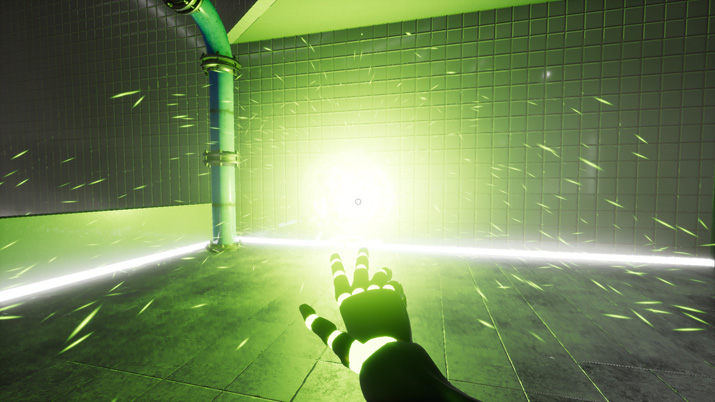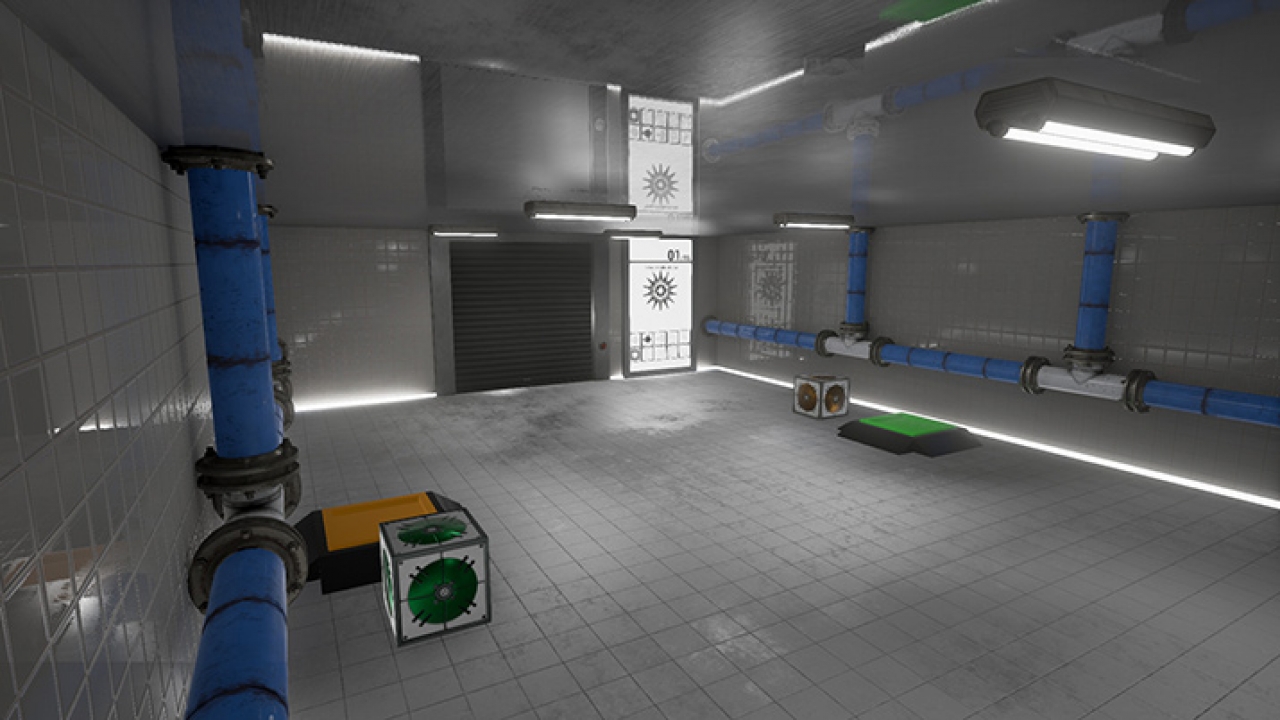A PORTAL IN TIME
From the very familiar “tests,” to the GLaDOS-inspired A.I. antagonist, Subject A-119 borrows so heavily from Portal that it’s creator, Tom Heek, probably wouldn’t even mind the comparison.
Subject A-119 tells the story of a very gifted android who solves puzzles, using a variety of powers, in order to escape (what seems like) a mysterious android testing facility. Beyond that, there isn’t much introduced before you’re quickly thrown into your first puzzle, with nearly no tutorial or explanation of your powers.
While this method typically works for the genre, it ends up being pretty confusing here, considering you have six different powers that, at first, all seem the same. There’s the power to shoot energy balls, the power to shoot a different kind of energy ball, another power that doesn’t ever work correctly, the power to jump to an alternate timeline that doesn’t make any sense, the power to pick stuff up, and the power to reverse time; while having all these powers is ambitious, they end up distracting from the actual puzzles themselves.

A PUZZLING AFFAIR; OR, FACETS IN NEED OF POLISH
The puzzles in Subject A-119 are easy to figure out. Most include placing a box on a switch, jumping on a platform, or hitting a button in the nick of time. From the first seconds, you’re able to see the solution to the puzzle. The real puzzle ends up being how to use your powers to accomplish the task at hand. There are so many, with rules that constantly fluctuate, and sometimes they don’t cooperate. While I was able to play through over half the game in forty minutes, I would wager that fifteen of those were spent attempting to figure out how to use the powers — a couple of which I never had a reason to use.
Once you determine which power does exactly what, it becomes a matter of controlling them in order to solve the puzzle. Adding to that, the platforming sections become difficult in part due to physics that aren’t exactly perfect; frequently, boxes don’t stay on switches, objects can’t be put down, and the doors don’t operate as intended. More often than not, you accidentally push a crucial object off an edge and spend a lot of time re-obtaining it. I wouldn’t call these bugs, per say, just facets in need of polish .

IT PUTS THE LOTION ON THE SKIN
Subject A-119 is developed on the Unreal Engine, and looks fairly decent for being an indie project. The character model seems fluid and movement is smooth. However, some of the textures could use a little work, and the environments, for having an air of mystery, are lit pretty safely.
The music and sound effects are palatable and non-distracting: just fine for a puzzle game; the voice acting for our robotic “test-giver” is appropriately Portal-esque. The A.I. character is often humorous, like GLaDOS, and might be genuinely funny, if it didn’t sound like each line was borrowed directly from Portal. Other than the dialogue, it has no real influence on the puzzles and doesn’t directly keep you from trying to accomplish anything.
The Verdict
Subject A-119 makes a strong showing with a variety of abilities, but the puzzles, through mechanical and logical limitations, quickly fatigue the player. Puzzle addicts might be tempted to explore this title but, overall, Subject A-119 mechanics are more confusing than the actual puzzles, ultimately leaving players underwhelmed.


